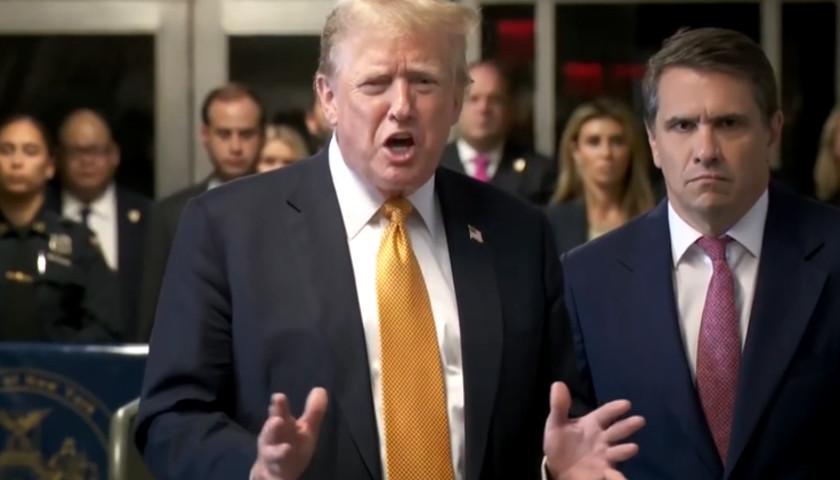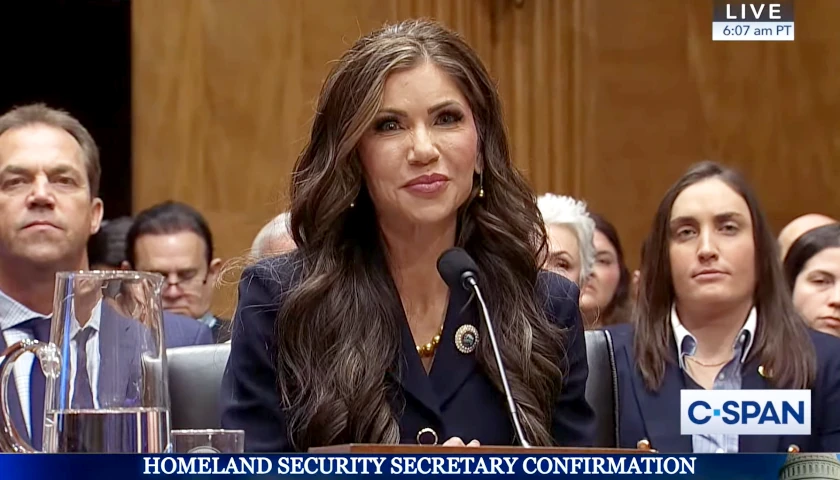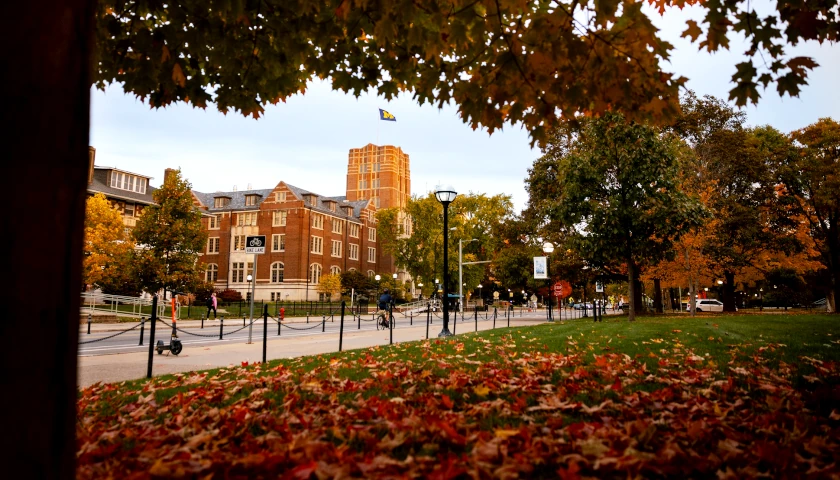by Steven Richards
Former President Donald Trump’s (pictured above, left) defense’s closing arguments in his so-called hush money trial on Tuesday were designed to plant seeds of reasonable doubt with the jury while the prosecution sought to prop up their key witness, Michael Cohen (pictured above, right), who continues to be plagued by credibility issues.
Manhattan District Attorney Alvin Bragg charged the former president last April with 34 counts of falsifying business records in order to conceal other crimes centered on his reimbursement to his lawyer and fixer Michael Cohen for hush money payments to Stormy Daniels and others.
Todd Blanche, Trump’s defense lawyer, spent his closing argument highlighting ten reasons why the jury should have reasonable doubt that Trump is guilty of the charges. Blanche focused heavily on former Trump fixer and disbarred lawyer Michael Cohen’s credibility as he argued that the jurors to acquit the former president.
These reasons include: that Michael Cohen solely created the invoices; there is no evidence that Trump knew about them being sent; there is no evidence that Trump intended to defraud anyone; there was no attempt to commit or conceal another crime; and according to WABC, Trump’s defense team mimicked the term “GOAT,” used primarily in sports as an acronym for “greatest of all time,” labeling Cohen the “GLOAT” – greatest liar of all time” and called Michael Cohen “the human embodiment of reasonable doubt.”
“There’s no way that you can find that President Trump knew about this payment at the time it was made without believing the words of Michael Cohen, period. And you cannot — you cannot — believe his words,” Blanche told the jury, though Judge Juan Merchan told the jury to discount those words, calling them “inappropriate.”
Blanche recalled evidence presented at trial that Trump did not have full knowledge of what Cohen had planned to do about the Stormy Daniels story. In fact, one recording presented during Cohen’s testimony indicates that Trump did not understand what exactly his so-called fixer was up to, Just the News previously reported.
CNN Legal Analyst Paula Reid says this was the main task of the defense.
“It’s their key point. This is the most thing they need to get across to jurors to doubt the version of events that Michael Cohen conveyed on the stand,” Reid said. “It is supported by a mountain of evidence that Michael Cohen is liar,” she added.
Blanche told the jury Tuesday in his closing arguments that Cohen was also motivated to handle the Stormy Daniels payment largely on his own because he saw it as an opportunity to further his own career.
“[Who] else would do that for somebody? Who else? I did because I care about the guy. I wasn’t going to play pennywise pound foolish. And I’m sitting there and I’m saying to myself what about me?” Cohen said to Daniels’ lawyer in a 2017 conversation. Blanche argued that Cohen’s words revealed that the now-disbarred lawyer wanted more in return for his actions now that his ex-boss was the president.
“It made perfect sense for Mr. Cohen in 2016 to make payment without telling President Trump about it” in an effort to secure an administration job or better position at Trump’s organization, Blanche argued, according to CNN.
On the other hand, the prosecution, which started its closing argument Tuesday afternoon, centered its argument on showing the jury how Cohen’s testimony was corroborated by evidence in an effort to combat the defense, as they attempted to do during the trial.
The prosecutor is “trying to bridge this gap. He’s trying to say he’s corroborated with a mountain of evidence everywhere you look, he’s backed up. They’re going to get into the checks in the ledgers and the handwritten notes,” CNN legal analyst Elie Honig said.
But, Honig says there is a gap between the prosecution’s arguments and what the jury will have to consider.
There is an “unavoidable gap that you have to be able to take Michael Cohen at his word if you’re going to convict,” he added.
The prosecution spent most of its time in closing arguments rehashing the case that it presented to jurors during the trial, highlighting witness testimony and documents and explaining its charge, that the entire case centers around a “conspiracy and a cover up” to “corrupt the 2016 election,” and reiterating that the case is about Donald Trump’s actions, not Michael Cohen’s.
“This case is not about Michael Cohen. It’s about Mr. Trump and whether he should be held accountable for making false business entries in his own business records. Whether he and his staff did that to cover up election interference,” Prosecutor Joshua Steinglass told the jury.
Cohen’s “significance in this case is that he provides context and color to the documents, the phone records,” he added. “He’s like a tour guide through the physical evidence, but those documents don’t lie and they don’t forget.”
Cohen, widely considered the prosecution’s key witness in this trial, came to the proceedings bearing his own significant credibility issues which includes his past perjury conviction and disbarment. The former fixer also admitted on the stand during the trial that he stole about $60,000 from the Trump Organization where he worked for Trump.
District Attorney Bragg’s case also faces challenges from the witnesses called by the prosecution, including former Trump communications aide Hope Hicks, former National Enquirer CEO David Pecker, and former Stormy Daniels attorney Keith Davidson, who contradicted central planks of the case, Just the News previously reported.
After the closing arguments, the jury is expected to begin deliberations on Wednesday to decide whether former President Trump is guilty of the 34 counts arrayed against him by Bragg. It is not known how long the 12-person jury will deliberate.
– – –
Steven Richards is a reporter for Just the News.
Photo “Donald Trump” by Donald Trump.





